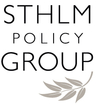Evaluation of the Norwegian Centre for Human Rights Aug 27
Sthlm Policy Group · Comments: 0The End Review was commissioned by The Norwegian Centre for Human Rights (NCHR) and carried out by Sthlm Policy Group AB between December 2023 and June 2024.
The scope of the End Review comprised three country cases, including investigative interviewing in Brazil (capacity-building of professional groups, including police in Brazil); university teachers in China; and strengthening the religious functionaries and religious personnel in Indonesia.
The NCHR is a multi-disciplinary centre at the Faculty of Law at the University of Oslo. NCHR aims to promote human rights internationally through competence-building, knowledge enhancement and dialogue. With innovative project methods and a research-based approach, NCHR seeks to engage academics, practitioners and civil society representatives to find human rights-based solutions to societal challenges. The international engagement is anchored in the United Nations Declaration on Human Rights Education (2012), where human rights education is defined as “education about, through and for human rights”. An extended network of partners across various regions of the world are engaged in human rights education and training at the university level.
The promotion of universal respect for and observance of all human rights and fundamental freedoms focused on the following thematic areas: 1) Rule of Law 2) Religion and Human Rights, with a focus on the right to freedom of religion or belief 3) Equity and non-discrimination 4) Business and Human Rights and 5) Human Rights Education.
The End Review focused on the effectiveness and relevance of the programme and assessed progress. The following questions were examined:
- To what extent have results been achieved at the outcome level?
- What are the best practices in terms of the NCHR approach to education and training across the various projects and human rights topics addressed?
- How is existing risk analysis integrated into the project approach?
- To what extent is the issue of women’s rights and gender equality substantially addressed in specific projects implemented by NCHR and partners?
- How can NCHR use gender-mainstreaming as a tool to support qualitative change?
- To what extent is NCHR able to move beyond simply “counting women”, to “making women count”?
- To what extent are the various projects in different countries addressing this cross-cutting issue?
- To what extent is the results framework used as a tool for results management, including prioritization, monitoring and reporting? What improvements can be made to future results framework to make it more suitable for the purpose, including in the context of the purpose and use stated in the agreement with the Norwegian Ministry of Foreign Affairs?
In addition, the review includes an assessment on how the NCHR most efficiently can work to make sure that women’s rights and gender equality is substantially dealt with throughout the whole project cycle, and identify possible tools, strategies and working methods that can help improve implementation.

Comments: 0